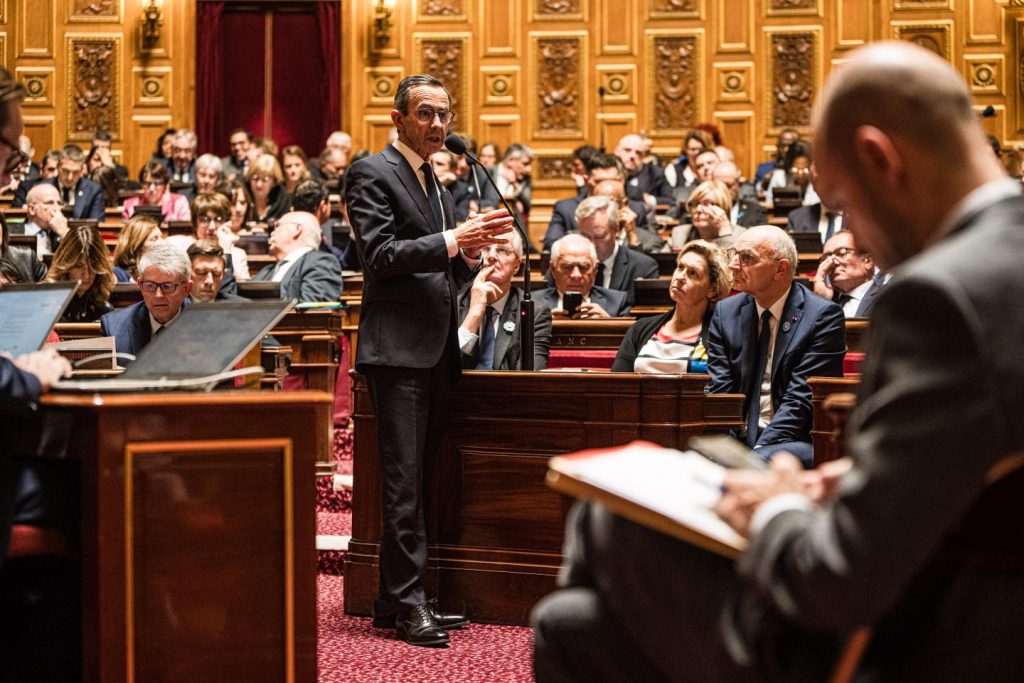The Minister of the Interior, Bruno Retailleau, addressed the Senate on November 6, 2024. Following a challenging review at the National Assembly, where government supporters were already in the minority, the budget texts arrived at the Senate in their original version. The Social Security financing bill could not be voted on in the National Assembly within the constitutional deadlines, and the revenue portion of the finance bill was rejected by deputies on Tuesday, November 12. This situation was not unwelcome to the government of Michel Barnier, who had not yet had to use Article 49.3 of the Constitution, allowing a text to be adopted without a vote, and could now count on a chamber that was more favorable to them.
Since 2017, governments appointed by Emmanuel Macron could only rely on a few dozen senators. However, the recent alliance between the right, which dominates the Luxembourg Palace, and Macronist lawmakers has resulted in 66% of senators belonging to groups supporting the government. With the 130 senators from the Les Républicains (LR) party, the 60 from the Union centrist group, the 20 from the Macronist group of the RDPI, and the 19 from the group Les Indépendants-République et territoires, totaling 229 senators out of 348 are in favor of the government. This shift has led to the unprecedented appointment of 10 senators to the government, including six from the LR group, such as the long-standing President Bruno Retailleau.
The return to government responsibilities has ended thirteen long years of government drought for the Senate’s right-wing. With their 130 seats, the LR group remains the largest in the Senate, but they have never held so few seats since the merger of the right into the UMP in 2002. The opposition, described by some as radical or even visceral since Macron came to power in 2017, has driven some senators away, resulting in the creation of the Les Indépendants-République et territoires group, which is favorable to Macronist governments. Despite the strained relationship between the presidential and LR camps in the Senate, their return to power is seen as a form of revenge for past grievances.
The rejection of the budget text by the National Assembly in 2025 has allowed the government to regain control. The unsuccessful attempt to moderate the budgetary shock by Michel Barnier led to a shift in power dynamics. The alliance between the right and Macronists in the Senate has significantly tilted the balance in favor of the government. With the President of the Senate, Gérard Larcher, playing a crucial role in influencing this change, the government now has a more supportive chamber to push through their legislative agenda. The strategic appointment of senators to key government positions reflects a new era of collaboration between different political factions in the Senate.
The recent developments in the Senate signal a significant shift in power dynamics and political alliances in France. The government’s ability to navigate challenging legislative processes and gain the support of a majority of senators reflects a broader trend towards coalition-building and compromise in French politics. The role of key figures like Gérard Larcher and Bruno Retailleau in shaping these changes highlights the importance of individual leadership in driving political outcomes. As France continues on its political journey, the evolving dynamics in the Senate will continue to shape the country’s governance and policy decisions moving forward.


